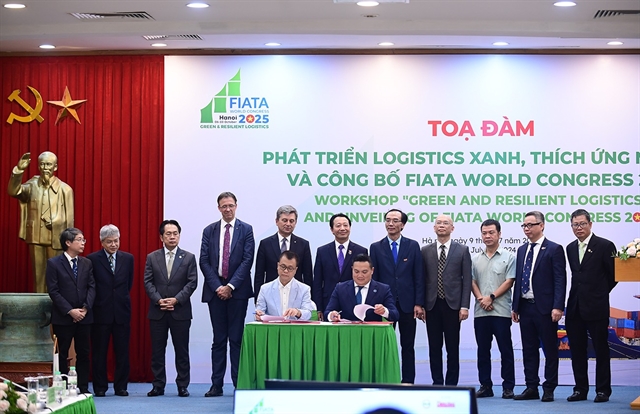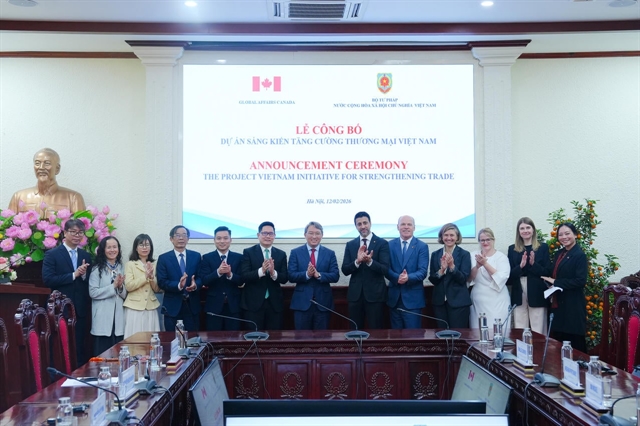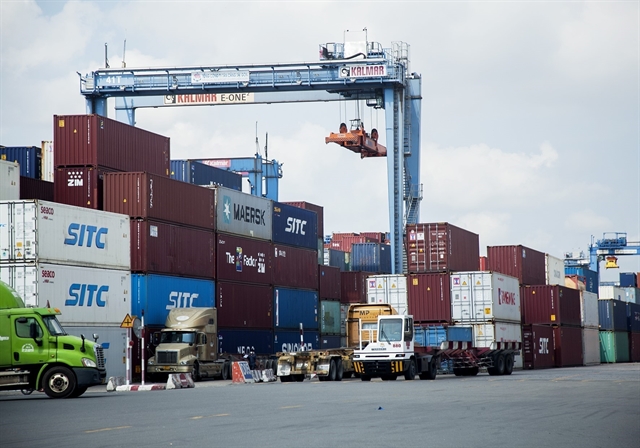 Economy
Economy

 |
| Containers at Cát Lái Port, HCM City. Việt Nam is one of the top ten emerging logistics markets. —VNA/VNS Photo |
HÀ NỘI — Việt Nam must enhance its development of green logistics to help domestic enterprises participate further in the global market, industry insiders say.
The country's logistics industry has recorded a growth rate of 13-15 per cent each year, making it an important service industry and boosting the nation's socio-economic development. However, according to experts, the industry is not yet participating much in the global logistics chain.
Đặng Hồng Nhung from the Import-Export Department under the Ministry of Industry and Trade said that Việt Nam was one of the top ten emerging logistics markets, ranking at fourth place in the International Logistics Opportunity Index. This showed the great potential of the Vietnamese logistics market.
Nhung also said that the industry had made a significant contribution to Việt Nam's import-export growth in the past several years. Import-export turnover increased to over US$680 billion in 2023 from just $150 billion in 2010.
However, logistics is also an industry with large emissions and high energy consumption, and is therefore significantly affected by the green transformation trend. According to Nhung, this trend will affect the logistics industry in two ways: by both creating pressure and also by creating opportunities for Vietnamese enterprises.
Logistics businesses will have to comply with new government regulations and high standards from international organisations on limiting waste and limiting energy consumption.
The green transformation could also create conditions for the Vietnamese logistics industry to develop further. Over the long term, becoming more sustainable will help enterprises optimise processes, reduce costs and gain new business opportunities.
According to Trần Thị Thu Hương, head of the Logistics and Supply Chain Department at the University of Commerce, Việt Nam is now home to nearly 30 foreign logistics corporations and more than 34,000 Vietnamese logistics enterprises.
However, most Vietnamese logistics firms only play outside roles, providing satellite logistics services to the foreign companies.
To promote the development of green logistics, the Vietnamese logistics industry needs to carry out its goals relating to sustainable development, along with strong investments by the State in developing logistics infrastructure.
The most fundamental solution is to raise awareness among the business community and its customers. Customer demand will force enterprises to implement green development.
Mai Trần Thuật, general director of Đông Á Pharmaceutical Logistics JSC, said training courses on green logistics was necessary for enterprises, helping raise awareness of the benefits of green logistics, such as cost reduction.
In addition to policies on attracting investment in green logistics, Việt Nam needed to have more macro policies supporting development in this area, Thuật said.
The Government has preferential policies to support logistics businesses in converting vehicles, including three years of exempt registration fees for battery-powered electric trucks and half off registration fees for the following two years.
The Ministry of Industry and Trade also plans to support enterprises, especially small and medium-sized firms, in the process of converting their vehicles.
The ministry is currently drafting a strategy on developing the country's logistics services over the next decade. Developing green logistics features prominently in the draft strategy.
Nhung said that in 2022, the ministry published a Green Logistics Report. Since then, the business environment and enterprises' awareness of green logistics had improved.
"If companies want to develop, they must include a green transformation in their business strategy. The enterprises that already have such a strategy should regularly update their plans to take into account new regulations and Government incentives relating to this issue," Nhung said. — VNS




